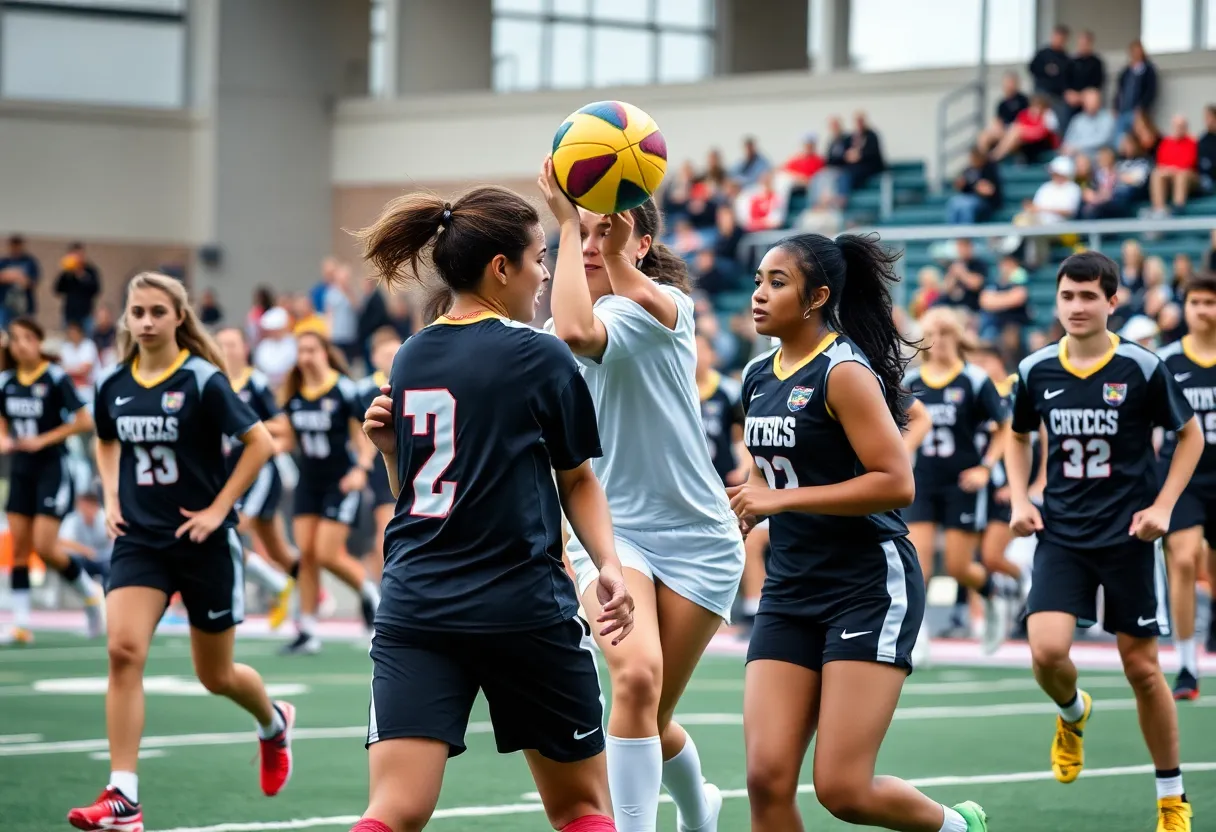News Summary
Louisiana has enacted an executive order allowing colleges to pay athletes for their name, image, and likeness (NIL). Governor Jeff Landry’s order aims to safeguard against NCAA penalties and promote competitiveness in college sports. Legislative efforts, including tax exemptions for NIL income, reflect a commitment to support student-athletes. However, concerns arise over potential state-to-state competition for talent, and ongoing legal developments could impact the future of NIL regulations.
Louisiana has taken significant strides to support student-athletes by enacting an executive order that allows colleges and universities in the state to directly pay athletes for their name, image, and likeness (NIL). This executive order, signed by Governor Jeff Landry, aims to provide legal protection for Louisiana schools against potential penalties from organizations like the NCAA regarding compensation of student-athletes. This move reflects growing efforts to adapt to evolving regulations around NIL deals, which have become integral to the world of college athletics.
The recent developments were driven by a legislative task force made up of athletics leaders, student-athletes, and high school coaches who met to discuss challenges associated with NIL agreements. Their goal was to address issues that might hinder student-athletes from capitalizing on these opportunities. Notably, Representative Rashid Young, a former student-athlete himself, is pushing for fairness and better protections for these young athletes beyond just their academic pursuits.
In light of the new executive order, university athletic officials, including athletic directors from LSU and Southern University, have expressed praise, highlighting the significance of this development in maintaining Louisiana’s competitiveness in college sports. However, there are concerns that too much regulation could encourage student-athletes to leave Louisiana for states with more favorable NIL conditions.
To further substantiate this support for student-athletes, Rep. Dixon McMakin has also introduced two bills: House Bill 166, aimed at exempting all athlete NIL income from state taxes, and House Bill 168, suggesting a $12,500 exemption that aligns with the standardized deduction for residents. These bills reflect a move to keep Louisiana competitive, particularly with states like Texas that do not impose income taxes. However, experts caution that such tax breaks could create unfair advantages and complicate the state’s tax policy.
Louisiana’s executive order sets itself apart from similar initiatives in other states, such as Georgia, by explicitly prohibiting the use of any state funds for athlete payments. The governor’s directive implies that, even though NIL deals are now more accessible, there remains a commitment to do so within ethical and legal frameworks.
As the landscape of college athletics rapidly changes, NIL deals have emerged as vital in recruiting athletes, significantly influencing their decisions. There is a growing financial potential for college athletes, particularly in high-revenue sports like football and basketball. LSU’s NIL collective, known as Bayou Traditions, recently raised $2.3 million to support athlete deals. Furthermore, with settlements anticipated in ongoing antitrust litigation against the NCAA, major universities may soon have the ability to compensate athletes directly for the first time, albeit potentially with restrictions in place.
This new environment for college athletes marks a monumental shift, where significant revenue opportunities now lie at their feet. Coaches, such as LSU’s head football coach, have also contributed meaningfully; for instance, he donated $1 million to the Tiger Athletic Foundation’s scholarship fund, adhering strictly to NIL regulations.
However, there remains uncertainty ahead. The executive order may eventually become obsolete if Congress takes action to standardize NIL regulations nationwide or if ongoing legal disputes result in settlements that alter the current structure of college athlete compensation. As the situation evolves, it will be crucial for all stakeholders to navigate these changes effectively to protect the interests and welfare of student-athletes in Louisiana.
Deeper Dive: News & Info About This Topic
- Lailluminator: Louisiana Governor Signs Order to Allow Schools to Pay College Athletes
- Google Search: Louisiana College Athlete Compensation
- WAFB: Executive Order Dealing with Student Athletes NIL Signed by Gov. Landry
- Encyclopedia Britannica: College Sports
- KPLC: Louisiana Legislators Consider College Athletics Subsidies
- Google News: Louisiana NIL Task Force
- Tiger Rag: Louisiana Task Force on NIL Update
- Wikipedia: Name, Image, Likeness
- Louisiana Radio Network: College Athlete NIL Developments
- Google Scholar: NIL Deals College Athletes

Author: STAFF HERE NEWORLEANS WRITER
The NEW ORLEANS STAFF WRITER represents the experienced team at HERENewOrleans.com, your go-to source for actionable local news and information in New Orleans, Orleans Parish, and beyond. Specializing in "news you can use," we cover essential topics like product reviews for personal and business needs, local business directories, politics, real estate trends, neighborhood insights, and state news affecting the area—with deep expertise drawn from years of dedicated reporting and strong community input, including local press releases and business updates. We deliver top reporting on high-value events such as French Quarter Festival, New Orleans Jazz & Heritage Festival, and Essence Music Festival. Our coverage extends to key organizations like the New Orleans Chamber of Commerce and Greater New Orleans, Inc., plus leading businesses in energy, healthcare, and education that power the local economy such as Entergy, Ochsner Health, and Tulane University. As part of the broader HERE network, including HEREShreveport.com, we provide comprehensive, credible insights into Louisiana's dynamic landscape.

